
TV policy
Under the name of information blockade, what is considered is the refusal of all television companies (there are 11 broadcasters among them) to grant candidates airtime.
None of the private television channels applied to the CEC with the intention of posting campaign materials of the candidates on a paid basis. Only Public Television expressed its desire to disseminate paid campaign materials. According to the price list released by ITV, one second of the speech of persons, whose candidacies had been registered for a deputy, or their representatives on television for conducting paid pre-election campaign in the elections to the Milli Majlis would be a minimum of 22 manats (1320 manats per minute) and a maximum of 65 manats (3900 manats per minute). On Public Radio, the minimum cost of air time is 7 manats per second, and the maximum cost of air time is 25 manats per second. According to legislation, ITV should also allocate free airtime for MPs. However, Public TV has announced that parties, of which candidates were registered in more than 60 constituencies (ie, only the NAP), would be provided with free airtime. Others might get paid airtime for 65 manats per second. At the same time, 30 news agencies and websites, 9 newspapers and one TV expressed their willingness to release paid campaign materials. The pre-election campaign started on January 17 and ended on February 8 at 8:00 am, the day before the voting. Khalid Aghaliyev, an expert on media issues, answered ASTNA's questions regarding the media's response to the pre-election campaign.
This severely limited the candidates' communication with voters.
Although the YAP refused to advertise, television companies indirectly and actively promoted the activities of the government, including President Aliyev, including government officials.
Given that television companies remain to be important mass media source and elections are an important public-political event, their refusal to provide public interest is a gross violation of the broadcasting law and the constitutional rights of the citizens.

The activities of TV channels are regulated by the Law “On Television and Radio Broadcasting”. According to Paragraph 32.0.2.1 of Article 32 of that law, all public and political programs of televisions and radio stations must be neutral, impartial, balanced, and reliable;
- Paragraph 32.0.4 specifies that unilateral interpretation of facts and events is unacceptable;
- Paragraph 32.0.4 specifies that humiliation of the honor and dignity of people, and the degradation of their business reputation is unacceptable and it is necessary to show respect for the rights and freedoms of citizens guaranteed by the Constitution;
- According to Paragraph 40.2.4 of Article 40, all sources of information must respect the private life, business reputation, honor and dignity of citizens;
- According to Paragraph 40.2.5, professional ethics should be followed;
- and finally, according to Paragraph 40.2.9, impartiality and neutrality should be ensured.
So, according to the law, TV channels should not promote intolerance against thinking differently, give the same airtime for political forces, etc, yet, we are not saying that insulting citizens is unacceptable.
The fact that television channels are involved in the process of combating the opposition cannot be ignored. In other words, we have witnessed that the NAP has been conducting PR campaigns for many years at the expense of taxpayers.
On the eve of the elections, the National Television and Radio Broadcasting Council allocated a one-time financial assistance to five private national television and radio companies – “Lider”, “Khazar”, “ATV”, “ARB 24” and “Space” - worth 600,000 manats ($ 352.9 thousand at current exchange rates).
These funds would be sufficient to cover free elections. However, given that the TV channels do not have an independent information policy and are completely dependent on the executive, it is possible to conclude that the instruction on the obstruction of election coverage was issued from the top executive. Thus, citizens' rights to obtain important information about candidates in order to make a decision to vote in favor of their candidate were violated.
Television is the only mass media that is able to cover a particular constituency audience. Newspapers and the Internet are not able to do that. For example, the media can have tens of thousands of visitors. But it is all over the country and abroad. In a particular constituency, this figure is much smaller and, at best, can cover several hundred users. Newspapers with low circulation generally do not have any way influence on the electoral process and the voters.
The information policy of the CEC
The CEC established a data center for the coverage of the elections and formed a media group of various mass media. The aim was to create conditions for proper coverage of the elections and informing the electorate. However, the data center spread disinformation, and the media group disregarded the falsifications recorded by candidates’ such as Igbal Aghazadeh and Mehman Huseynov’s camps and announced the official position.
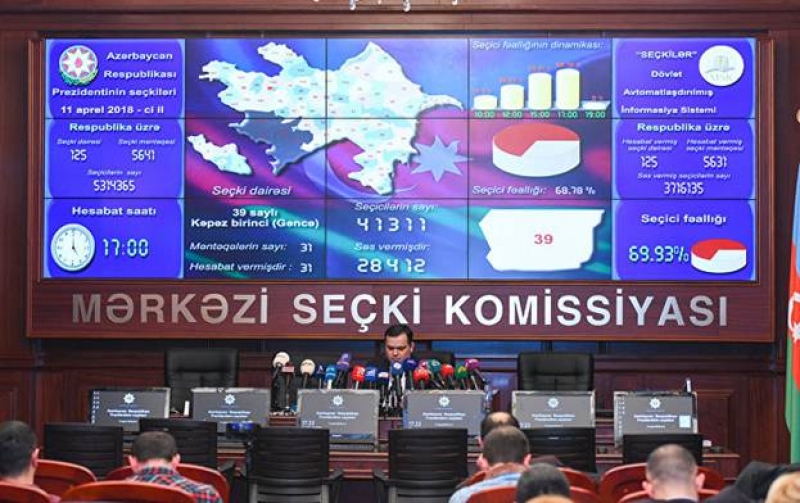
The Press Council does not see violence against journalists
On January 16, the Press Council said at a press session on "the coverage of the election in the mass media" that a "hotline" would be functioning in the Press Council on Election Day. The information provided to the hotline would be transmitted first to the CEC. This was announced by the chairman of the Press Council, Aflatun Amasov. He also said that members of the Press Council would also observe the elections in the regions.
A summary of the website of the Press Council showed that journalists had applications. However, the content of the appeals was not disclosed. There are no reports yet on the activity of hotline and the results of observations. There is no information available on Election Day about interferences with the activities of journalists and the use of violence against them. Although some mass media and social networks have reported such incidents, the Press Council does not say anything about illegal actions against journalists and bloggers.
It should be noted that the Press Council conducted monitoring of the activities of the media regarding the parliamentary elections. The purpose of the monitoring was to identify significant professional trends in the coverage of the election period of the country's leading mass media, which influences public opinion, and to inform the public about it. The monitoring focused on the extent to which mass media follow the "Code Of Professional Ethics For Journalists Of Azerbaijan". In this connection, campaign and anti-campaign materials and cases of "black PR" were focused on.
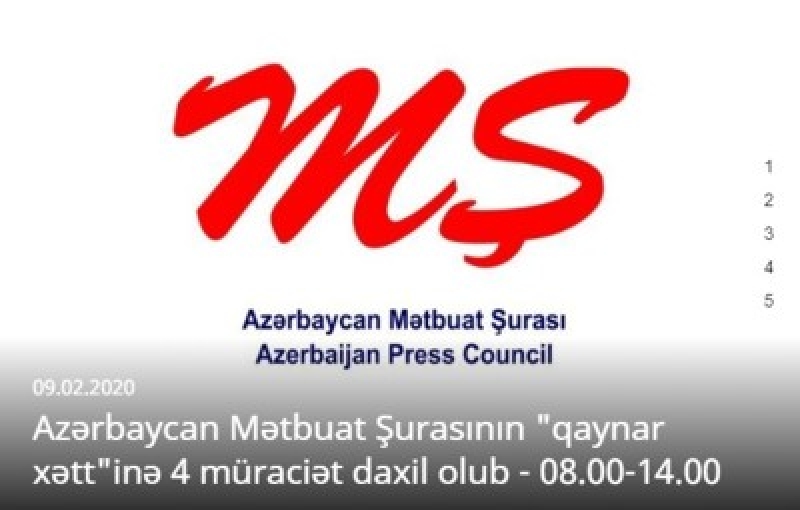
The monitoring was conducted in 3 stages.
From the date of the official announcement of early elections to the Milli Majlis until the beginning of the campaign – December 5, 2019 –January 16, 2020;
The campaign period January 17, 2020 – February 7, 2020;
Coverage of the February 9 parliamentary elections. Media participation in the process, the study of the conditions created for the activity of journalists – February 9, 2020.
Preliminary results of monitoring involving 20 newspapers and 30 electronic information resources.
The reports were published in two stages. The attention of mass media to the election issue has increased from 30% in the first stage to 70% in the second stage. It also talked about the use of "black PR". The third important thing – the voting day was not reflected in the mass media on the joint Press Council website. The Press Council promised to report on the coverage of the election in the mass media.
Violence against journalists
During voting in the parliamentary elections, journalists were subjected to attacks in some polling stations from the morning. According to videos posted on social networks, this happened in the center of Baku's, Constituency No.23 (Precinct No.1), and in Lankaran Constituency No.76 (Precinct No.30).
Election commission members and unidentified persons obstructed journalists, expelled them and broke their cameras.
Other precincts also contained numerous reports of similar attitudes toward mass media workers. The CEC did not respond to the incident.
During the night of February 11, when a protest in front of the Central Election Commission (CEC) was disrupted, a special-purpose police officer was rude not only to the candidates for a deputy but also to a large group of journalists. Police detained female journalists and had them boarded to buses, and some of them were injured. Aynur Elgunash's head was torn.
Moreover, a freelancer Aytaj Tapdig, Sevinj Vagifqizi (Meydan TV) (serious injury on her arm and a blast on her face), Ulviyya Guliyeva and Aygun Rashidova (Voice of America) were detained.
All of them were subjected to violence while in custody and suffered from varying degrees of injuries.
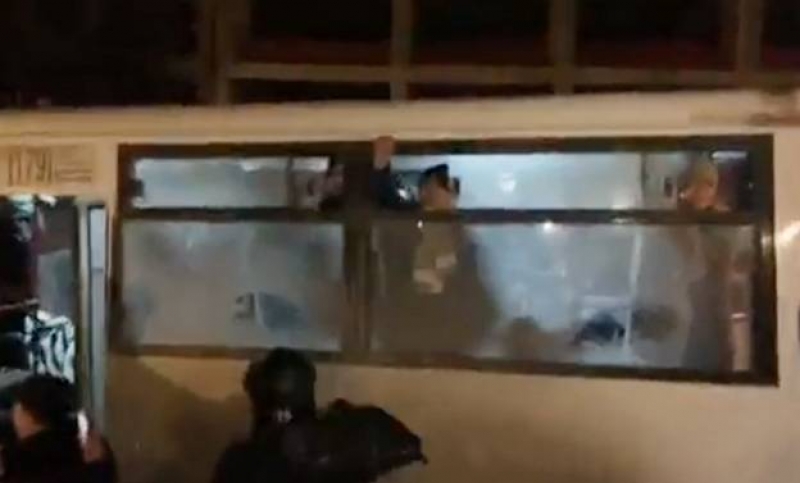
The editor of the “Basta” website, Mustafa Hajibeyli, was beaten in front of the CEC building on February 11 during a protest rally and was taken to the 5th police station.
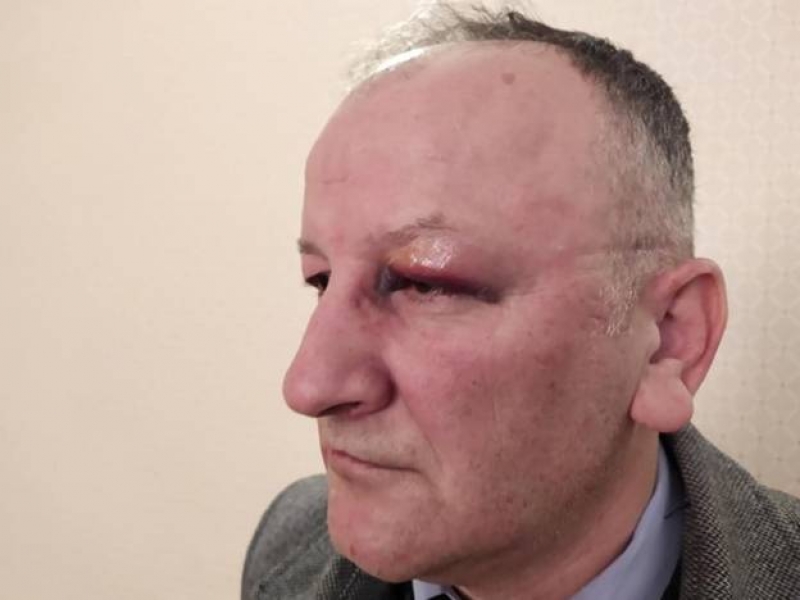
OSCE Representative on Freedom of the Mass Media, Harlem Desir, said he deplored the brutal treatment, arrests, and violence against journalists during a protest in front of the CEC in Baku on February 11.
“I am concerned about the brutal treatment of law enforcement agencies, arrests, and violence against journalists enlightening public protest. This is especially unacceptable because journalists have enlightened events of public interest regarding the results of elections to the legislative body,” added H.Desir.
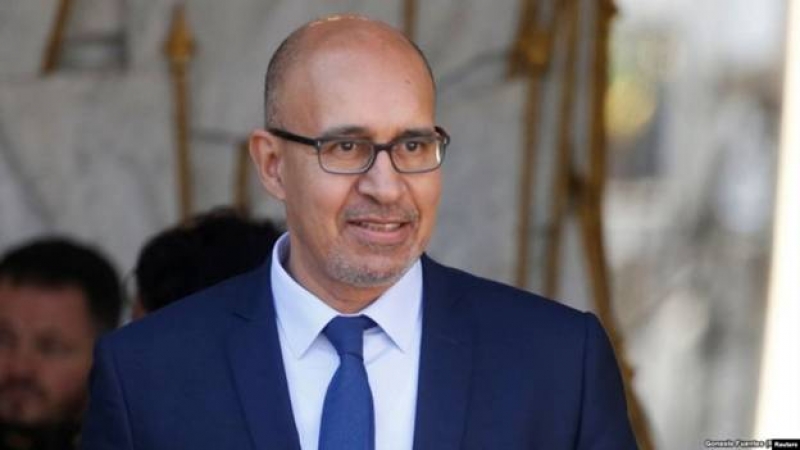
Social networks as the main alternative information space during February 9 elections
The current elections have been remembered by the growing influence of social networks at all stages. A number of candidates have taken advantage of the communicative potential of social networks for targeted work with voters in their constituencies, including delivering their platforms and connecting voters around them. Furthermore, social networks have become a major tool for the monitoring of the electoral process by voters, interactive communication between candidates and voters, public control, and evaluation of elections.
In the next election, it is expected that social networks and separate online information platforms will play a crucial role in campaigning and election monitoring, as well as mobilizing voters who want to protect their votes.
The authorities understand this role of social networks. It is no accident that the performance of YouTube and WhatsApp platforms have deteriorated on the voting day and in the following days.
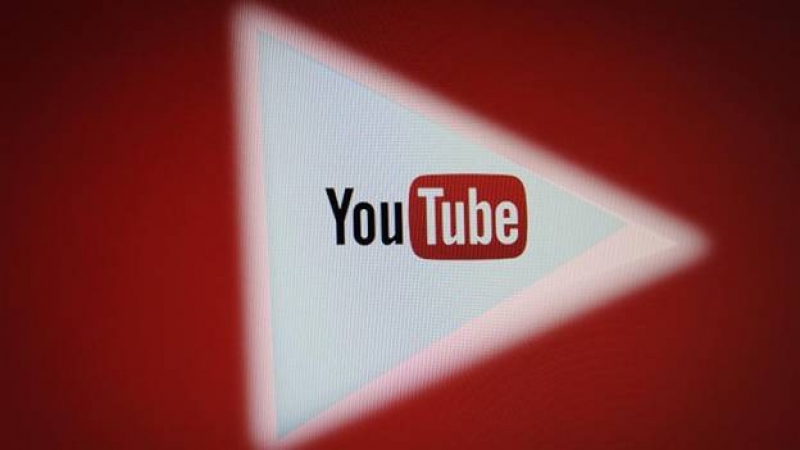
Users of YouTube have been facing problems since February 9 in Azerbaijan.
Users of social networks report that there occur problems signing in from different browsers.
“For two days, YouTube does not open videos. I thought there was a problem with the browser. I deleted and downloaded it but the same thing happened. It looks like someone is blocking access to YouTube,” a user named Vali Guliyev told Turan.
The editor of the “Xural” website, Avaz Zeynalli, said he also faced problems while using YouTube. “Since election day, we have been unable to broadcast live on our YouTube channel. In recent days, the Internet speed has fallen sharply. Although our provider is KaTV, other providers have the same problem too,” A.Zeynalli said.
CityNet provider company denied information about blocking. "Simply, there is a problem with the YouTube channel by itself, so some users have had problems," the provider's representative told Turan.
Gunel Gozalova, a spokeswoman for the Ministry of Transport, Communications, and High Technologies, told Turan that she has not been aware of any problems with YouTube over the past three days. According to her, no complaints from users were received.
Media expert Alasgar Mammadli told Turan that there are problems with Internet speed in Azerbaijan. In some cases, such as during the October 19 rally, the Internet was massively cut off by providers and mobile operators.
"I think that while many information and video footage has been shared about the recent parliamentary elections, it is no exception that this kind of restrictive steps could be taken," he said.
If such a step was taken, it was the violation of the Law and the Constitution, as well as Article 10 (freedom of expression) of the European Convention on Human Rights. In addition, there was a breach of contract between the provider and the user.
According to a 2018 study conducted by “Kaspersky Lab”, 97% of Internet users in Azerbaijan regularly visit YouTube. The number of Internet users in Azerbaijan is 7,991,000. Overall, 79.8% of the population is Internet users.
Recommendations
1. The Pre-election campaign should be extended up to 60 days;
2. A special TV should be created under the CEC to broadcast during the election period, to present candidates' speeches on a free basis, to organize discussions, etc.;
3. Assistance in the use of social networks for candidates’ campaigning and election monitoring should be provided;
4. Manipulations in the CEC information network should be excluded.













Leave a review